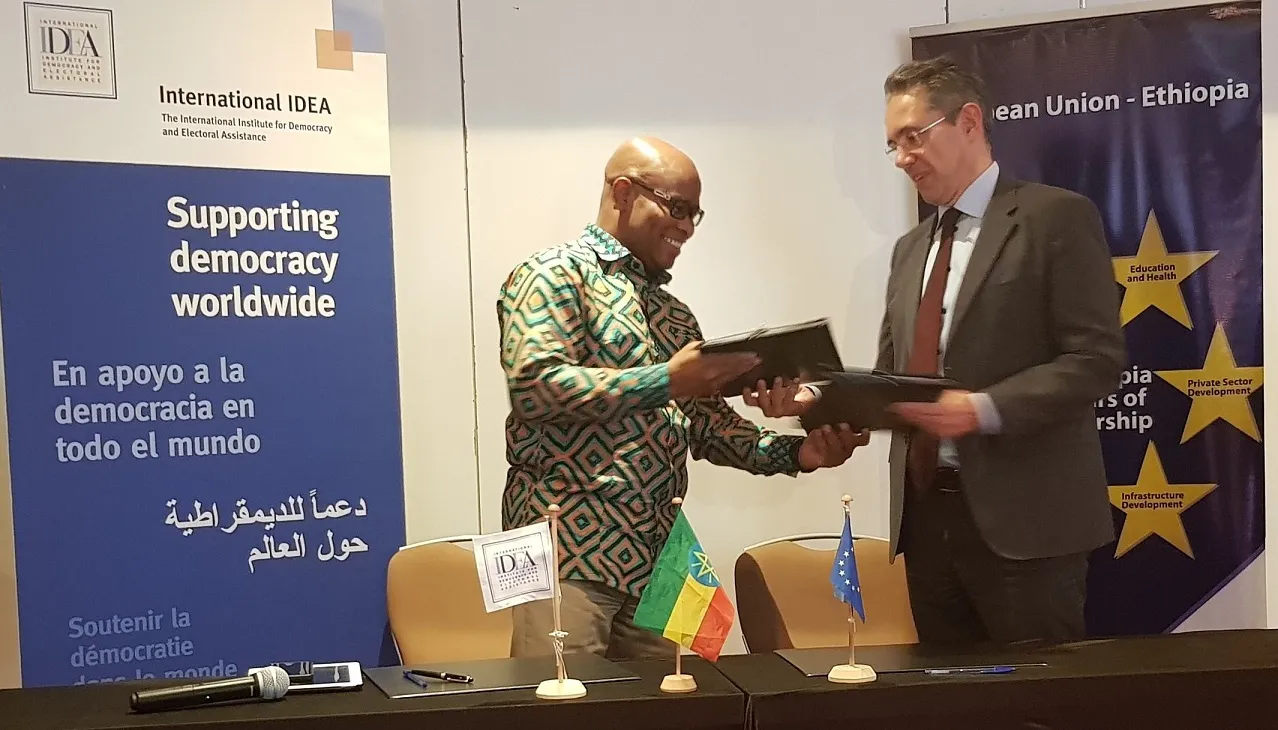The EU and International IDEA Sign a Project to Support Dialogues in Political Processes in Ethiopia

The agreement that sets the foundation for the International IDEA EU-funded project entitled, “Establishing an Environment for Inclusive, Knowledge-based Dialogue on the Political Process in Ethiopia” was signed in front of representatives from co-implementing partners/agencies InterAfrica Group (IAG) and International Revival Ministry (IRM) as well as other stakeholders on Wednesday, 3 April 2019.
The objective of the project is to establish an enabling environment for an informed, inclusive, national stakeholder dialogue on legal and institutional reforms on the bedrock of evidence-based knowledge that contributes to consolidating national cohesion and fostering peace and political stability in Ethiopia. It will run on a total budget of €1 million for a total of 18 months concluding at the end of July 2020.
With national elections quickly approaching in 2020 as well as the broader reform processes that were promised gathering momentum, it is critical that stakeholders are able to participate constructively in dialogue over key structural issues that have contributed to the current political instability in the country. The rapid scale of change in the country has made many encouraged and eager to participate, yet it has also left civil society organizations that have been marginalized and political parties that had either been dormant or in exile, unprepared.
The sudden opening of political space means, few mechanisms exist for engaging in informed and constructive discussions; and those that exist are seldom based on knowledge as there has been little research into critical issues. Thus, the first component of the project seeks to identify key issues of national concern requiring the generation of evidence-based knowledge and facilitating the drafting and publication of nine research papers as well as nine accompanying issue papers. The second component will focus on convening 11 dialogues to engage political parties and other stakeholders on subject areas of research that would have been undertaken. The project aims to engage and benefit political parties, federal and regional state governments, civil society organizations, media and other stakeholders in the political process.



